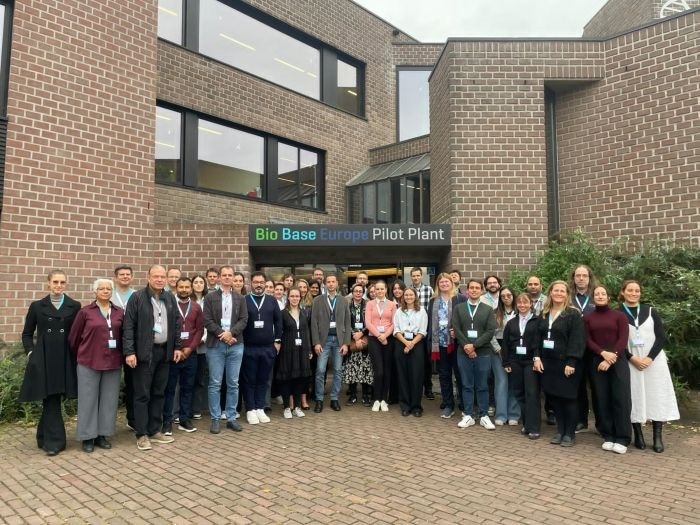The research integrates Safe-and-Sustainable-by-Design principles, AI-powered process intensification, smart polymerisation strategies, and eco-design approaches.
Target applications include fresh food flexible packaging, short-lifetime deli packaging, beverage bottles, and personal care packaging.
AIMPLAS Drives Innovation in Biodegradable Polymers and End-of-Life Safety.
 Image Credit: AIMPLAS
Image Credit: AIMPLAS
The UPCYCLE project, funded by Horizon Europe under the European Health and Digital Executive Agency (HADEA), officially kicked off with a two-day meeting in Gent, Belgium. Coordinated by Aalborg University (Denmark), the project brings together 19 partners from 12 countries to develop novel circular value chains that convert non-recyclable plastic waste into highly recyclable and non-persistent packaging materials.
With more than 460 million tonnes of plastics produced annually worldwide, only 9 % is effectively recycled, while plastic packaging accounts for 40 % of demand and 60 % of plastic waste in Europe. Most packaging is used once, with two-thirds discarded within a year, often relying on complex or contaminated plastic streams that persist in the environment for centuries.
UPCYCLE aims to tackle these challenges head-on by developing novel circular value chains that convert today’s non-recyclable plastic waste into highly recyclable and non-persistent packaging materials. By doing so, the project will reduce reliance on incineration and landfill, support EU circular economy goals, and create a credible pathway toward non-persistent, safe, and sustainable plastics.
Building on the success of the H2020 UPLIFT project, UPCYCLE advances to demonstration scale, integrating Safe-and-Sustainable-by-Design principles, AI-powered process intensification, smart polymerization strategies, and eco-design approaches. Target applications include fresh food flexible packaging, short-lifetime deli packaging, beverage bottles, and personal care packaging - all sectors where recyclability and end-of-life performance are critical.
AIMPLAS Role in the Project
AIMPLAS, the Plastics Technology Centre, plays a central role in the project by bridging the gap between polymer research and real-world packaging applications. The center is developing new polyesters and copolyesters - such as PEF, PBAF, and PLA blends - through tailored formulations and pilot-scale production using advanced technologies including reactive extrusion, compounding, injection molding, and blow molding. AIMPLAS also leads the evaluation of how these materials behave at the end of their life, conducting biodegradation modelling, compostability testing (industrial and home), environmental assessments in soil, freshwater and marine settings, and multi-cycle mechanical recycling trials. Additionally, AIMPLAS contributes to defining end-user requirements, market analysis, and regulatory compliance, ensuring that UPCYCLE’s materials are not only innovative but also safe, scalable, and market ready.
The UPCYCLE consortium includes Aalborg University, DTU, RWTH Aachen University, University College Dublin, Lund University, BOKU, Helmholtz-Zentrum Berlin, Leibniz Institute – Hans Knoll Institute, Forschungszentrum Jülich, AIMPLAS, Bioplastech, TECNARO, BIO-MI, EVYAP, EROSKI, PACK4FOOD, AEIMIS, ECO Imagination, and Bio Base Europe Pilot Plant. This multidisciplinary team combines expertise across the entire plastics value chain - from waste collection and depolymerization to polymer design, formulation, demonstration, and market deployment.
By 2029, UPCYCLE aims to deliver packaging materials that are highly recyclable, non-persistent, and biodegradable where appropriate, while reducing greenhouse gas emissions by 30 % compared to current bioplastics. These innovations will support EU strategies on plastics, the Single-Use Plastics Directive, and the Circular Economy Action Plan.